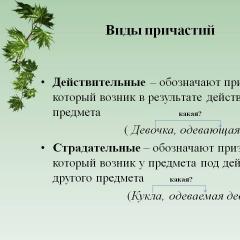Paronim words: examples, meaning and use
And the meaning of words should be especially highlighted by paronymia, that is, situations where the interlocutors are incorrectly used in their speech-paronims. Examples of this error can be detected in any of us. This is the wrong way dress upand Wear a wonderful and Wonderful painting and signature. Avoiding these errors will help know the knowledge of words, as well as the understanding of the phenomenon of paronymy and the reasons for its occurrence.
Paronimia
Paronimia is a fairly common linguistic phenomenon, in which two or more words have similarities in pronunciation and belong to one part of speech. Often, such words contain one common root, but their value does not match. Situations in which people when communicating, writing or oral, confuse the values \u200b\u200bof word-paronimov, replacing one word to another, called paronymia.
This type of errors refers to lexical and is associated primarily with ignorance of values \u200b\u200bof certain words, the rules of their use in speech. True, in some cases, suggestions with paronims are used in the literature to create paronasia and punctures.
Paronyms
The term "paronym" comes from two Greek words: Para - "Near" and ónyma - "Name". Paronims are words close in sound, but not identical, often they relate to one grammatical category, that is, belong to one part of speech, but at the same time they have different lexical meanings.
Paronyms are not interchangeable in speech, as this leads only to the distortion of the statement. Often, paronimny couples are combined with different words. So, a pair of "full" - "satisfying" is combined with different noun. Rich dinner and fastened child.

The similarity of paronyms can lead to annoying errors, so you should pay attention to their true meaning and choose the right pair. For it, you need to know the meaning of the word. Paronims may also have similar meaning and differ only with a tint.
Improper use of such words is a fairly common lexical error.
In some cases, paronyms can be synonymous. For example, "romantic" and "romantic", "ironic" and "ironic" (smile or remark), "melodic" or "melodic" sound, "patriotic" and "patriotic" act.
The main groups of paronyms are represented by adit and verbs, nouns and no less.
Often, the steam is formed either with the words of the original Russians, for example, "Bolotnaya" and "swampy", or from the "leasing" and "listing".
Types of paronimov
There are several classifications of such words. By birth, root, affixual, etymological words, paronyms allocate. Examples of them we meet every day.

Root paronyms have different, but somewhat similar to the root. For example, "excavator" and "escalator", they do not have a common semantic communication.
Affixes of paronyms have a common root and combined with a common semantic bond, but have a different meaning due to the use of prefixes and suffixes. For example, "Subscriber" - "Subscription", "economical" - "economical".
Etymological are formed in the case when the same word is borrowed by the language of different ways. So, the word "project" is assimilated from Latin, "Progodek" - from French.
Also allocate types of word-forming parlor:
1. distinguishing consoles:
- typos - prints.
2. Fixed suffixes:
- unrequited - irresponsible.
3. distinguishing the basis, that is, having a derivative and non-derivative basis:
- growth is age;
Semantics distinguish paronyms that have one value, but different semantic shades. For example, the "long" - "long", "life" - "Easy". Also isolated paronyms that have a completely different semantics: "nest" - "nesting", "Virage" - "Stained-glass window", "minced" - "farce".
Frequently used paronyms
Note the most frequently used paronymic pairs.
A rather famous paronymic pair can be considered the words "dress" - "Wear". It should be remembered that you can wear someone, and to wear something.

Very often there are proposals with Painting Paronims and Signature. The painting is a written list of something, wall painting, recordings. The signature is the surname's own surname at the end of the document.
Address and address address. The addressee is the one who is addressed to the parcel or letter, the address - a man who sent it.
Archaic and archaic. Archaic - characteristic of the antiquity, archaic - coming out of use.
Democratic and democratic - another couple of words. Democratic - the one belongs to democracy. Democratic call something characteristic of democracy.
Another interesting couple of words is "friendly" and "friendly." Friendly - relating to friends, friendly - based on friendship.
Logical and logical. Logical - the correct, correct, consistent. Logic - related to logic.
It is important to pay attention to the use of word-paronims and avoid errors related to their use.
Causes of paronymia
The main reasons why errors associated with the use of paronyms are allowed in the speech, four:
1. Insufficient knowledge of the values \u200b\u200bof one or another word or even several.
2. The incompetence of the speaker in the sphere of activity to which this word belongs.
3. Banal illiteracy and disadvantage of the vocabulary stock.
4. Reservations in speech.
Paronomasia
Paronomasia is a strengthening means a stylistic figure, which consists in deliberate use of consonant words. Most often to create paronasia are used words of paronym. Examples of this phenomenon can be seen in such suggestions:
It would be happy to serve - to serve sick.
He is not wonderful guy, and wonderful.

Paronomasia - pun, evaluate which readers with good language alarm and a sense of humor can. It is often often lies not only sound, but also semantic consonation. Paronomasia is used as headlines to attract the attention of readers, for example: "Self-government or self-government?".
Synonyms Dictionaries
You can avoid annoying errors in speech using literature. So, to find out the value of the paronyms using thematic dictionaries. In alphabetical order, a list of paronymic pairs is given. In this case, each word included in a couple has its own vocabulary, as well as examples of regulatory use in speech.
To date, you can take advantage of the following dictionaries:
1. "Dictionary of Russian Paronimes" edited by N. P. Kolesnikov. It was published in 1971.
2. "Dictionary of Paronimes of the Russian Language" edited by O. V. Vishnyak. The book saw the light in 1984.
3. In 1994, by the editor of Yu. A. Belchikova and M. S. Panyushev, another "dictionary of Russian Paronimov" was published. He was reissued in 2007.

These books will help you to get acquainted with the main paronymic ranks, the meaning of the words included in them.
conclusions
Paronims are words that are similar to sound, but have a different semantic value. In some situations, they can be synonymous. Each of us periodically uses words-paronyms in their speech. Examples of their use: painting and signature, put on and dress.
Speech should avoid abnormative use of words from paronimic couples. You need to pick up what is suitable in this situation. The regulatory consumption of paronyms is a sign of the formation and high culture of speech.


